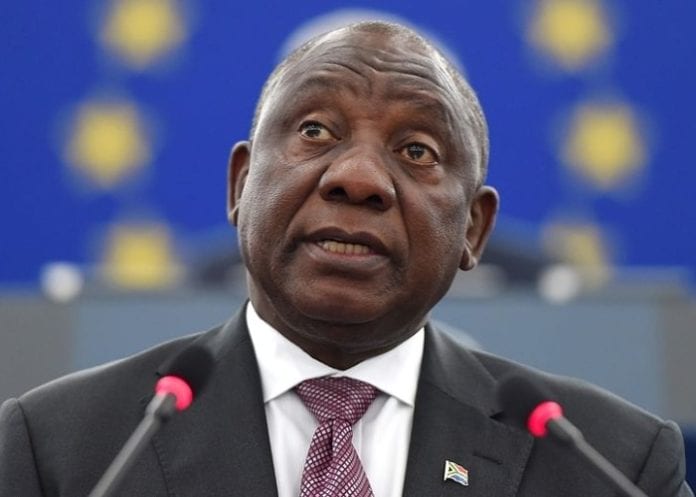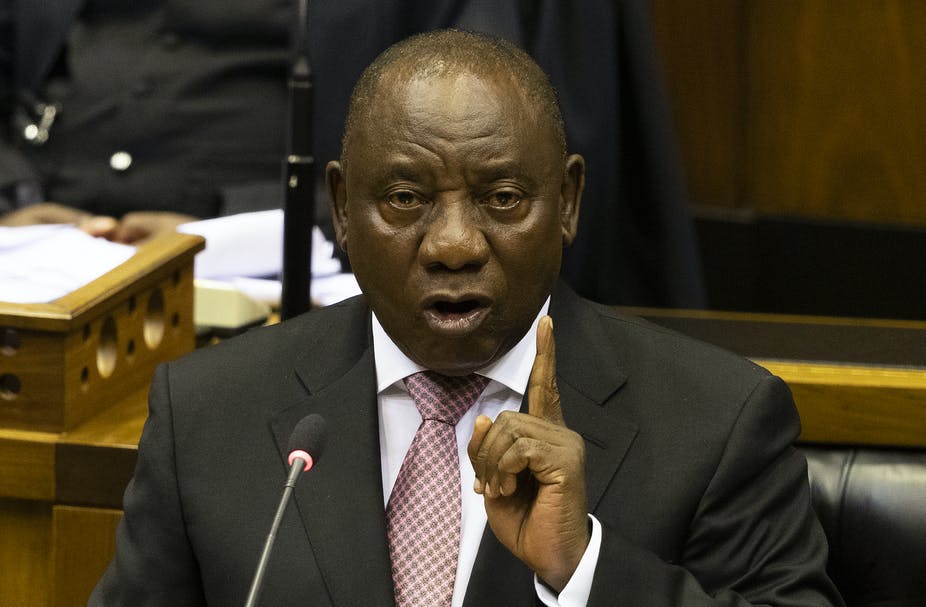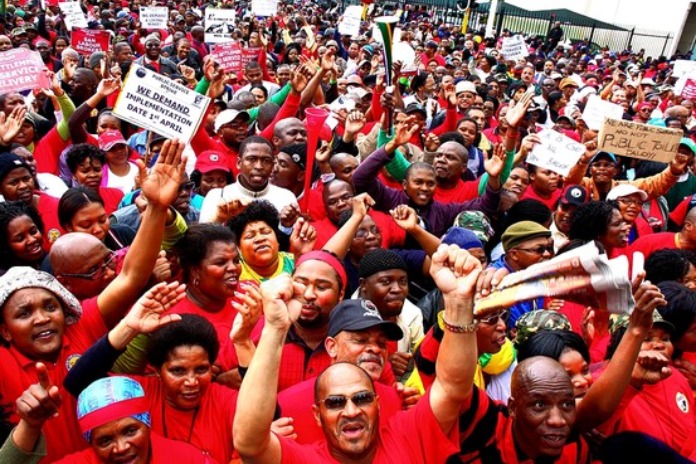Since April 2021, public servants in South Africa have been agitating for a salary increase. The inflation caused by the COVID-19 pandemic on the economy has made it more difficult for their previous salaries to take care of their daily needs, and the government on the other hand initially decided not to yield to the demands of the public sector as the pandemic and other unrests in the country have also affected the economy. Besides, the South African Minister of Finance has already made it clear in 2020, that the salaries of public servants would be frozen for the next three years.
After several negotiations, it became clear that the public servants were not going to accept a 0% increase and the government was also not going to increase their salaries by 8% according to their demands. Both parties finally decided on a 1.5% increase to the salary of all public servants in addition to a monthly non-pensionable allowance of between R1,220 and R1,695, which will see them go home with about R1,000 after-tax deduction. With this agreement, it looks like a win-win for both parties.
Public Servants Association (PSA) Started Their Demand For A Salary Increase In April 2021
Every April, the remuneration of public servants in South Africa is expected to be adjusted and of course, any adjustments can’t be a decrease – this is what the PSA and other trade unions affiliated to Congress of South African Trade Unions (COSATU) and Farmers United of South Africa (FUSA) were demanding for. Their demands included an 8.5% increase in salary of public servants, R2,500 housing allowance, and that 12% of the salary of public servants should be paid out to them in addition to their basic salary if they were directly affected by the COVID-19 pandemic.
Their demand was higher than the 4.3% inflation that the South African Reserve Bank has already forecasted for the year and the Department of Public Service and Administration that is responsible for paying government workers made it clear that the government could not afford such an increase as a result of the poor economic condition of the country.
After what seemed to be a day-long meeting between the Department of Public Service and Administration and the PSA on the 15th of April 2021 (a meeting that the PSA saw as a slap on their face because the government insisted on a 0% increase and agreed to increase their salaries on the basis that other funds and allocation for pay progression, settlement cost for workers who relocate and daily allowance should be stopped and the money could now be used to increase the salary of public workers instead), the PSA bluntly rejected the offer made by the government, making it clear that public servants deserve all the allowances they get.
However, the government reps who were already determined tried to convince them about being patriotic citizens by understanding the current economic situation of the country. But it didn’t work and the meeting ended in a deadlock.
The PSA Threatened A Strike Action That Was To Kick Off On The 11th Of June 2021
Public Service and Administration Minister, Senzo Mchunu was bent on remaining fixed on the ‘no salary increase’ stance. According to him, there was no other alternative. He also said the government had more pressing needs than giving in to the salary increase demand of the PSA.
In fact, Senzo Mchunu blatantly said the government was diligently making efforts to reduce the already high rate of unemployment in the country, which is currently at 32.5%. He said they were seeking to provide more jobs in the educational and security (policing) sector since those two sectors are currently understaffed, and so, there was no more money to fund a salary increase.
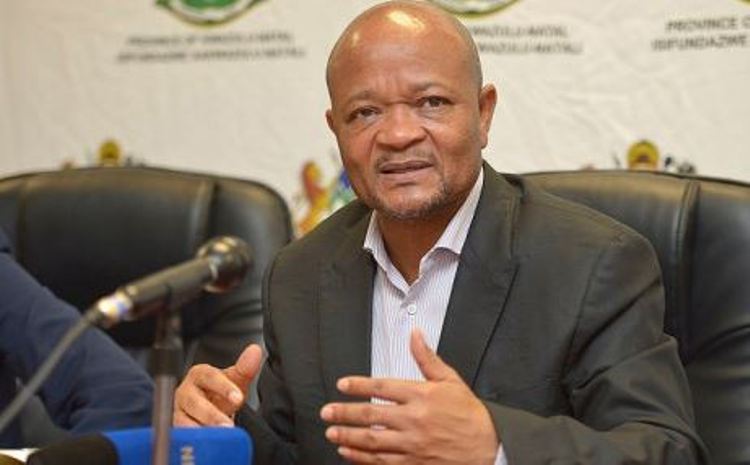
Following the refusal of the government to accept their demands, the PSA declared at the Public Service Coordinating Bargaining Council (PSCBC) on the 11th of May 2021 that if there is no agreement by both parties within 30 days, it was ready for a strike to begin on the 11th of June 2021 – despite the surge in the number of COVID-19 cases around the country.
The Government Proposed A 1.5% Salary Increase On The 9th Of July 2021
PSA did not carry on with its threat of a strike action which was billed to kick off on the 11th of June, as the government started speaking in the language they wanted to hear. Finally, on the 9th of July 2021, the government proposed a salary increase of 1.5%. This was way below what the PSA was asking for and the government knew it, but to make their proposal more enticing, they included a monthly allowance that ranged from R1,200 to R1,600. This was to cover the period between April 1, 2021, to March 31, 2022.
This proposal was going to be signed as an agreement and implemented on the basis that at least 50% of all the unions involved would agree to it within 21 days from the day it was formally tabled. The unions involved include:
- Health and Other Services Personnel Trade Union of SA (HOSPERA)
- National Professional Teachers Organisation of SA (NAPTOSA)
- The National Education, Health, and Allied Workers Union (NEHAWU)
- The Democratic Nurses Organisation of SA (DENOSA)
- SA Police Union (SAPU)
- The South African Democratic Teachers Union (SADTU)
- Police and Prison Civil Rights Union (POPCRU)
- Public Servants’ Association (PSA)
Over 50% Of The Unions That Make Up PSA Agreed To The 1.5% Increase
Following the 1.5% salary increase proposed by the government, the PSA was given until the 26th of July to agree or the offer will be withdrawn and both parties will have to go back to the negotiation table again.
South Africa has about 1.3 million public servants and all that was needed for the increase to be implemented was 50%, although most unions were reluctant at first, SADTU, DENOSA, PSA, HOSPERA, and NAPTOSA which altogether represents up to 739,035, agreed on the proposal, and this was already above the 50% threshold required.
Other unions that have refused to accept the proposal will vicariously get the increase and allowance as well. These rebelling unions have tabled their disapproval of the agreement before the Constitutional Court and a court hearing is set to take place on the 25th of August 2021.
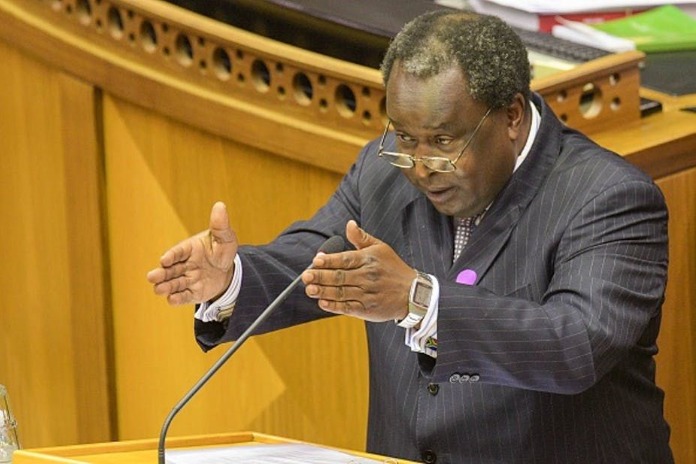
Although the 1.5% increase is a win for the government who already factored in the increase into the Treasury projection for the next three years, the other monthly allowances will cost R18 million and it is an expense that is not part of the Treasury’s budget. This means it will be added to the Treasury’s already existing public sector compensation bill of R650.4 billion for the 2021/2022 financial year. This allowance is expected to be funded from tax revenues.
Another thing to note is that the agreement between the government and public servants is expected to come to an end in March 2022. It is not clear whether there will be an extension beyond March 2022, or whether the government and the PSA will have to return to the negotiation table.
Public Servants’ Salaries Was Supposed To Increase In April 2020
In 2018, the government and the PSA reached an agreement at the Public Service Co-ordinating Bargaining Council (PSCBC) that public servants would get a salary increase between 4.4% and 5.4%, and this was expected to take effect from April 1, 2020, and last for three years. But the government failed to keep its part of the bargain, an action that contributed to the grievances of the members of the public service in 2021.
According to the Public Service and Administration Minister Senzo Mchunu, if the government decided to go ahead with the increment that was supposed to take place from April 2020, it would have to borrow R70 billion, and R37.8 billion will go into paying workers for 2020/2021 financial year. Efforts to make the government keep to their bargain by taking them to court proved abortive as Tito Mboweni and Senzo Mchunu argued that such increment put a huge financial burden on the government.
